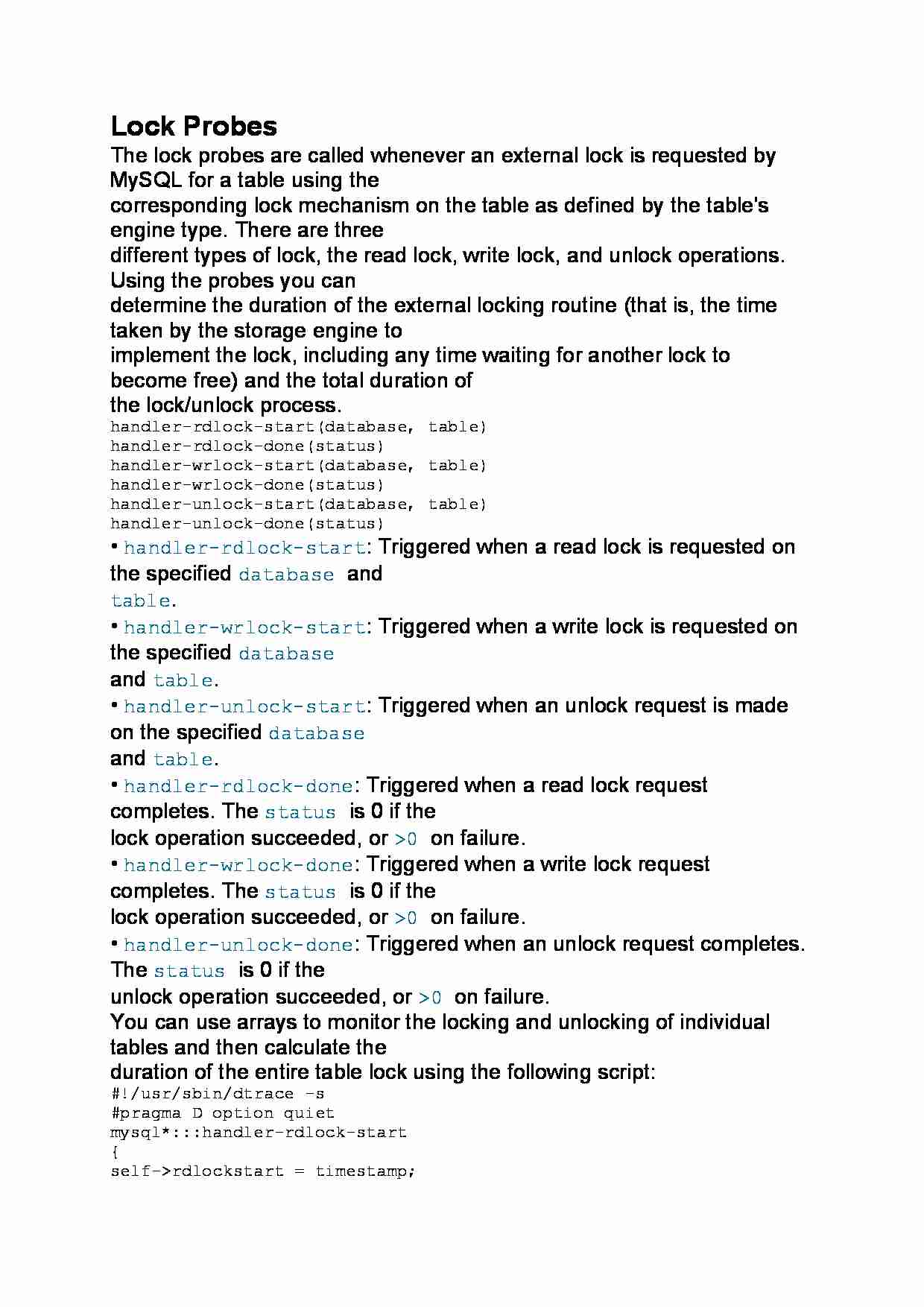To tylko jedna z 2 stron tej notatki. Zaloguj się aby zobaczyć ten dokument.
Zobacz
całą notatkę


Lock Probes
The lock probes are called whenever an external lock is requested by MySQL for a table using the
corresponding lock mechanism on the table as defined by the table's engine type. There are three
different types of lock, the read lock, write lock, and unlock operations. Using the probes you can
determine the duration of the external locking routine (that is, the time taken by the storage engine to
implement the lock, including any time waiting for another lock to become free) and the total duration of
the lock/unlock process.
handler-rdlock-start(database, table)
handler-rdlock-done(status)
handler-wrlock-start(database, table)
handler-wrlock-done(status)
handler-unlock-start(database, table)
handler-unlock-done(status)
• handler-rdlock-start: Triggered when a read lock is requested on the specified database and
table.
• handler-wrlock-start: Triggered when a write lock is requested on the specified database
and table.
• handler-unlock-start: Triggered when an unlock request is made on the specified database
and table.
• handler-rdlock-done: Triggered when a read lock request completes. The status is 0 if the
lock operation succeeded, or 0 on failure.
• handler-wrlock-done: Triggered when a write lock request completes. The status is 0 if the
lock operation succeeded, or 0 on failure.
• handler-unlock-done: Triggered when an unlock request completes. The status is 0 if the
unlock operation succeeded, or 0 on failure.
You can use arrays to monitor the locking and unlocking of individual tables and then calculate the
duration of the entire table lock using the following script:
#!/usr/sbin/dtrace -s
#pragma D option quiet
mysql*:::handler-rdlock-start
{
self-rdlockstart = timestamp;
this-lockref = strjoin(copyinstr(arg0),strjoin("@",copyinstr(arg1)));
self-lockmap[this-lockref] = self-rdlockstart;
printf("Start: Lock-Read %s.%s\n",copyinstr(arg0),copyinstr(arg1));
}
mysql*:::handler-wrlock-start
{
self-wrlockstart = timestamp;
this-lockref = strjoin(copyinstr(arg0),strjoin("@",copyinstr(arg1)));
self-lockmap[this-lockref] = self-rdlockstart;
printf("Start: Lock-Write %s.%s\n",copyinstr(arg0),copyinstr(arg1));
}
mysql*:::handler-unlock-start
{
self-unlockstart = timestamp;
this-lockref = strjoin(copyinstr(arg0),strjoin("@",copyinstr(arg1)));
printf("Start: Lock-Unlock %s.%s (%d ms lock duration)\n",
... zobacz całą notatkę




Komentarze użytkowników (0)